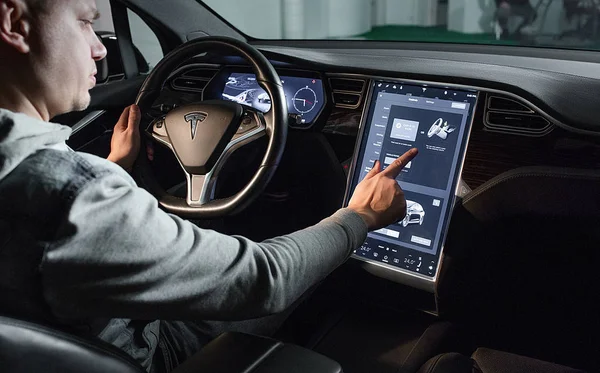In an era where technology is evolving at breakneck speed, the integration of artificial intelligence (AI) with electric vehicles (EVs) is paving the way for an autonomous future. According to a recent report by Reuters Mobility, the global autonomous vehicle market is projected to reach a staggering $60 billion by 2026. This rapid growth signals a transformative shift not only in how we drive but in how we live. In this article, we’ll explore how AI and EV integration is revolutionizing the automotive industry, the challenges and opportunities that lie ahead, and what this means for consumers and the environment.
The Intersection of AI and EVs: A New Era of Mobility
AI in Electric Vehicles: The Game Changer
AI’s role in electric vehicles is multifaceted, significantly enhancing both the driving experience and vehicle performance. Here’s how:
- Advanced Driver Assistance Systems (ADAS): AI-powered systems like Tesla’s Autopilot and Nissan’s ProPILOT assist drivers by automating tasks such as steering, braking, and lane-changing. These systems rely on machine learning algorithms and real-time data to make split-second decisions, increasing safety and convenience.
-
Predictive Maintenance: AI algorithms analyze data from vehicle sensors to predict and prevent potential failures. Brands like BYD and Volkswagen are leveraging this technology to reduce downtime and extend vehicle lifespan.
-
Energy Efficiency: AI optimizes battery management systems to enhance energy consumption. According to the IEA, this can improve EV range by up to 20%, making electric cars more practical for long-distance travel.
Autonomous Driving: Current State and Future Prospects
Despite the buzz, fully autonomous vehicles are not yet commonplace. Here’s where we stand:
- Level 2 and 3 Automation: Most EVs today, such as those from Hyundai and Ford, offer Level 2 automation, where the vehicle controls steering and acceleration but requires driver supervision. Level 3, which allows the car to drive itself under certain conditions, is being tested by brands like Lucid Motors.
-
Regulatory Hurdles: Safety regulations are a significant barrier. The MIT Technology Review notes that uniform global standards are essential for widespread adoption.
-
Consumer Trust: A 2023 survey by AutoCar revealed that 60% of consumers are hesitant about fully autonomous vehicles, highlighting the need for education and transparency.
Practical Considerations: Navigating the AI-EV Landscape
How to Charge Your AI-Enhanced EV
Charging infrastructure is crucial for the adoption of AI-powered EVs. Here are some tips:
- Home Charging Stations: Install a Level 2 home charger for convenience and faster charging times. Brands like Rivian offer tailored solutions.
- Public Charging Networks: Utilize apps like PlugShare to locate nearby stations. Companies like Tesla are expanding their Supercharger networks globally.
- Battery Health: Follow best practices for battery longevity, such as avoiding consistent deep discharges and charging to 80% for daily use.
Where to Buy and What to Compare
When venturing into the world of AI-integrated EVs, consider the following:
- Key Features: Compare ADAS capabilities, battery range, and charging options across brands. Tesla, for instance, boasts the most advanced autonomous features, while Volkswagen offers superior battery technology.
- Price vs. Performance: Evaluate the cost-benefit of AI features. While premium models like those from Lucid Motors offer cutting-edge technology, more affordable options from Nissan provide excellent value.
The Environmental Impact: A Greener Tomorrow
AI-enhanced EVs promise substantial environmental benefits:
- Reduced Emissions: Transitioning to EVs can reduce CO2 emissions significantly. A report by Bloomberg Green indicates that widespread EV adoption could lower global emissions by 540 million tons annually by 2030.
-
Smart Grids and Energy Management: AI facilitates the integration of EVs with renewable energy sources, optimizing energy distribution and reducing reliance on fossil fuels.
Conclusion: Embracing the Autonomous Future
The integration of AI with electric vehicles is not just a technological advancement; it’s a paradigm shift towards a more sustainable and autonomous future. As we navigate this journey, consumer education and infrastructure development will be pivotal. Are you ready to embrace this autonomous future?
The path forward is clear: as AI technology continues to evolve, so too will the capabilities of electric vehicles, making them safer, more efficient, and environmentally friendly. With companies like Tesla and Hyundai leading the charge, the question is not if but when autonomous driving will become the norm. The future of mobility is bright, and it’s electric.

